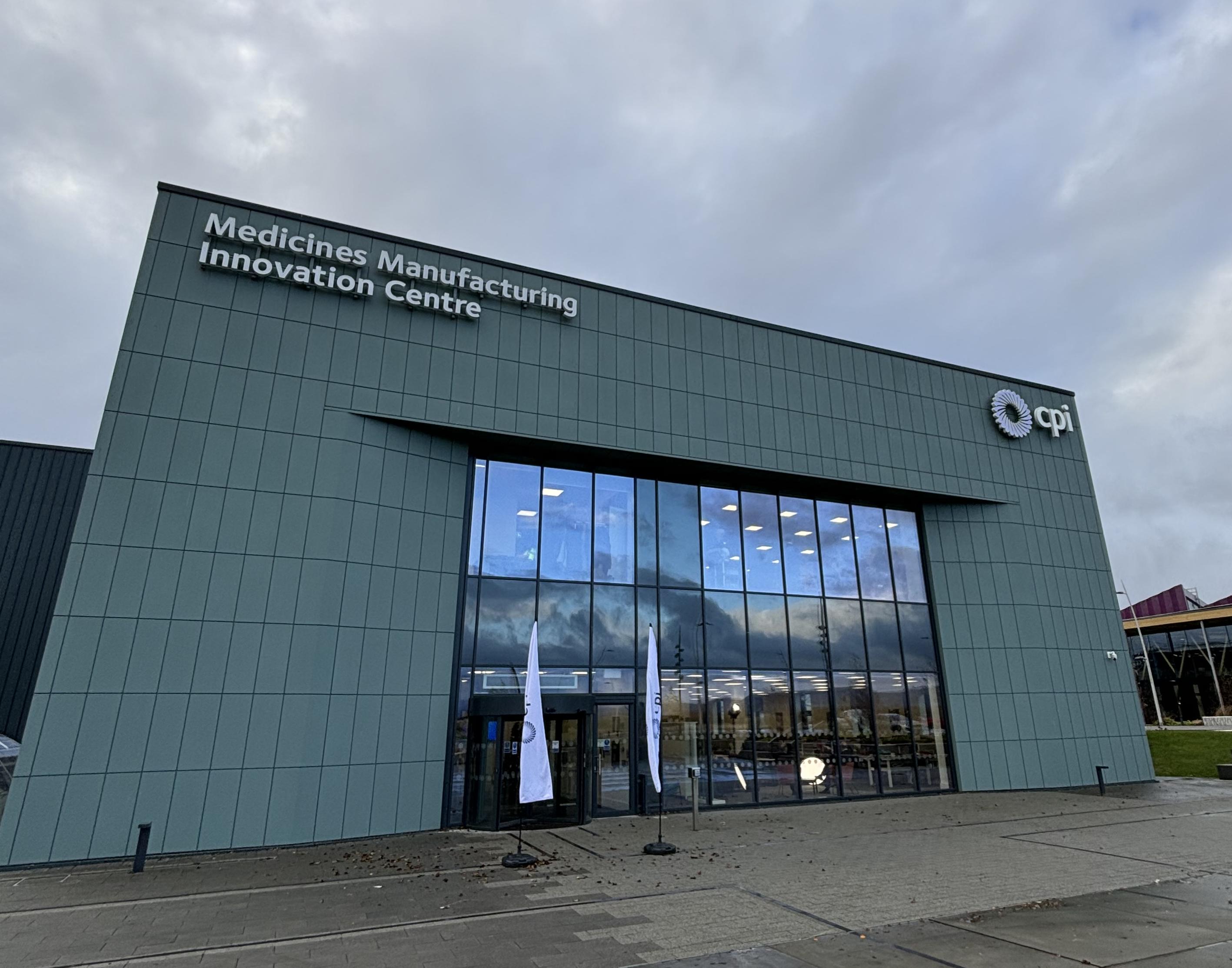First Minister breaks ground on £20m manufacturing centre in Renfrewshire

First Minister John Swinney and the UK Minister of State for Science, Research and Innovation, Lord Vallance, have marked the start of construction on the £20 million Oligonucleotide Manufacturing Innovation Centre of Excellence (OMICE) which will be based in the Advanced Manufacturing Innovation District Scotland (AMIDS) in Renfrewshire.
The state-of-the-art facility represents a transformative milestone in the UK’s capabilities for the manufacture of life-saving oligonucleotide therapies that will enable life-saving treatments and cutting-edge therapies to get to patients quicker.
Oligonucleotides are short strands of DNA or RNA that can target the underlying drivers of disease, with the potential to provide treatments for otherwise untreatable diseases, from cancers to Alzheimer’s. With an expanding pipeline of oligonucleotide-based medicines on the horizon, this centre in Renfrewshire places the UK at the forefront of their development and manufacture.
Renfrewshire Council leader Iain Nicolson said: “We are delighted that this centre of excellence, which will be transformative for the global life sciences, manufacturing and healthcare industries, will be based within AMIDS as we continue to create a world-leading district of innovation and collaboration.

“AMIDS is bringing academia, industry and government together in a manner that will be transformative for a number of sectors, the local and national economy, and bring thousands of highly-skilled jobs, training and opportunities to Renfrewshire.”
Jointly supported by the UK and Scottish governments through funding from the Office for Life Sciences and Scottish Enterprise, the new centre will act as a catalyst for economic growth and collaboration, creating high-skilled jobs and helping to form an innovative medicines manufacturing cluster in Scotland.
First Minister John Swinney said: “This centre brings together life sciences and manufacturing - two of our most successful sectors. We know the life sciences sector is good for Scotland’s economy, but the medicines that will be made in Renfrewshire will benefit people around the world by offering innovative and life-saving therapies with the potential to treat cancer, heart disease, and Alzheimer’s disease.
“The Scottish Government contributed £10.275m to this project through Scottish Enterprise. We did so because it reflects my commitment to transforming our approach to innovation by building new partnerships and driving collaboration between governments, industry and academic institutions.”

To be delivered by Tilbury Douglas, the build of this new centre solidifies the UK as a global hub for pharmaceutical innovation. With the global market for oligonucleotides continuing to grow, the UK is set to lead the way in shaping the future of healthcare through collaboration, innovation, and investment.
UK science minister, Lord Vallance, said: “Oligonucleotide therapies are set to be key medicines of the future and have huge potential to improve health outcomes for patients - tackling diseases such as cancer, Alzheimer’s and more.
“This new centre of excellence is a strategic investment which will support economic growth and better healthcare: two of the missions at the heart of this Government’s Plan for Change.”
The centre will be operated by CPI and positioned next to CPI’s Medicines Manufacturing Innovation Centre, expanding the company’s footprint at the Advanced Manufacturing Innovation District Scotland.

Frank Millar, CEO of CPI, said: “The Oligonucleotide Manufacturing Innovation Centre of Excellence will ensure we can get life-saving therapies to patients quicker, supporting the health and wellbeing of people around the world.
“The centre demonstrates the UK’s leadership in advancing high-value manufacturing and healthcare innovation. By investing in the manufacturing technologies of tomorrow, we are not only strengthening the UK’s competitiveness on the global stage but bringing impact back into the regions where we operate, enhancing our ability to attract inward investment and creating high-skilled jobs.”
Adrian Gillespie, chief executive of Scottish Enterprise, said: “This is a terrific step in Scotland becoming a world-renowned Oligonucleotide hub where innovative, life-saving treatments will be developed for patients around the globe.
“The market for this pioneering technology is predicted to double over the next five years which presents opportunities for many more companies to join a rapidly growing medicines manufacturing supply chain in Scotland.
“Our support is part of our long-term focused strategy to scale innovation in growth sectors like Life Sciences where Scotland excels.”




















